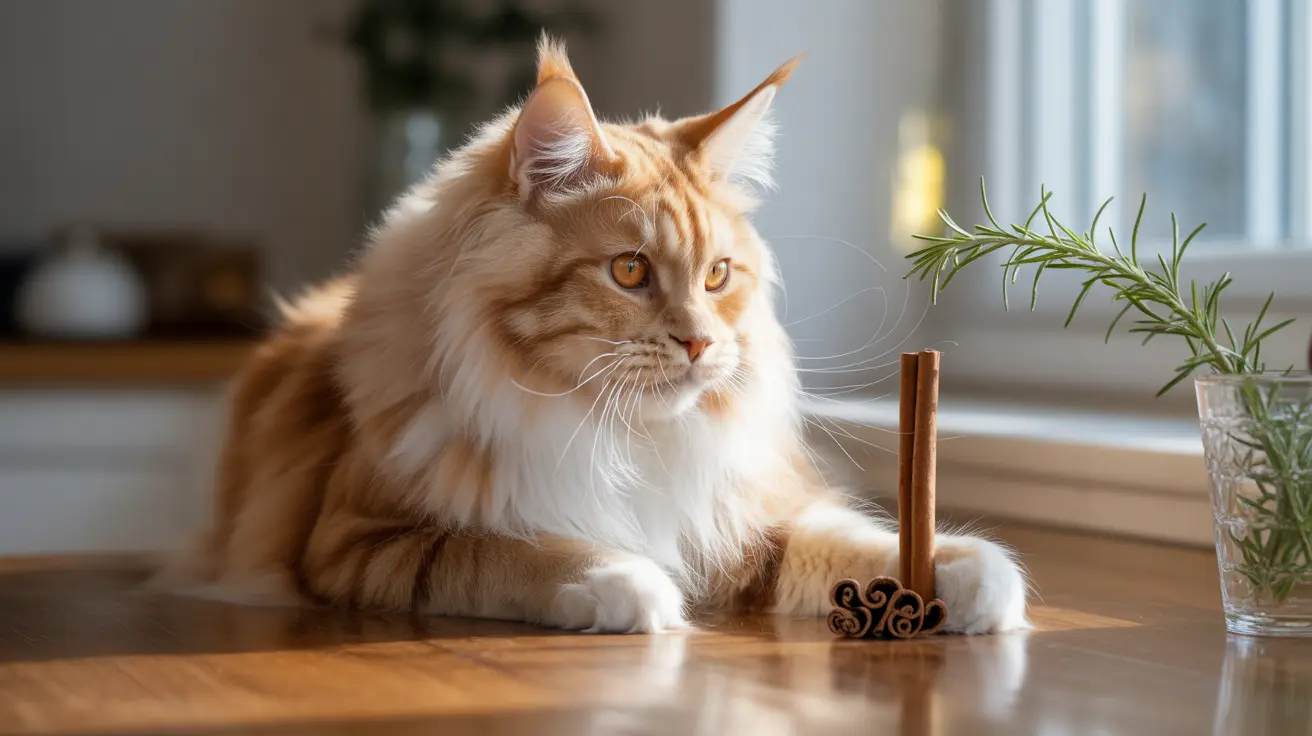As a loving cat owner, you might wonder about the safety of various foods and spices in your home. Cinnamon, a popular kitchen staple, can pose unexpected risks to your feline friend. Understanding these potential dangers is crucial for keeping your cat healthy and protected.
While cinnamon might seem harmless, cats have a unique physiology that makes them particularly sensitive to this aromatic spice. This article will explore the potential hazards of cinnamon exposure and provide essential guidelines for cat owners.
How Cats Metabolize Cinnamon
Cats lack a specific liver enzyme called glucuronyl transferase, which makes it challenging for them to break down certain compounds found in cinnamon. This metabolic limitation means that what might be a harmless sprinkle for humans can become a potential health risk for cats.
The Toxic Potential of Cinnamon
Despite the ASPCA classifying cinnamon as non-toxic, it can become harmful when consumed in large quantities. The spice contains compounds like coumarin, which can interfere with blood clotting and potentially cause serious health complications.
Common Sources of Cinnamon Exposure for Cats
Cats can encounter cinnamon through various unexpected sources, including:
- Chewing on cinnamon sticks or trees
- Consuming food flavored with cinnamon
- Licking cinnamon-infused essential oils or diffusers
- Touching products containing cinnamon oils
Hidden Dangers in Everyday Items
Essential oils and diffusers are particularly risky. The concentrated nature of these products can cause severe skin irritation and mucous membrane damage if your cat comes into contact with them.
Health Risks of Cinnamon Consumption
Cinnamon exposure can lead to several health issues for cats, including:
- Skin and mouth irritation
- Potential liver toxicity
- Interference with blood clotting
- Mucous membrane burns
- Potential respiratory problems
Symptoms of Cinnamon Toxicity
If your cat has been exposed to significant amounts of cinnamon, watch for these warning signs:
- Excessive drooling
- Mouth or skin irritation
- Difficulty breathing
- Unusual lethargy
- Changes in behavior
Safe Practices for Cat Owners
Veterinarians unanimously recommend avoiding cinnamon entirely. Even a small amount can cause problems for cats with sensitive systems. When in doubt, keep cinnamon-containing products out of your cat's reach.
Immediate Steps if Cinnamon Exposure Occurs
If you suspect your cat has ingested a significant amount of cinnamon, take these steps:
- Remove the source of cinnamon immediately
- Do not induce vomiting without veterinary guidance
- Contact your veterinarian promptly
- Monitor your cat for any unusual symptoms
Frequently Asked Questions
Can cats eat cinnamon safely, and what are the risks?
Cats cannot safely consume cinnamon. While small amounts might not cause immediate harm, regular exposure or large quantities can lead to serious health complications.
How can cats accidentally get exposed to cinnamon?
Cats can be exposed through chewing cinnamon sticks, consuming cinnamon-flavored foods, licking essential oils, or touching cinnamon-infused products.
What happens if my cat eats a large amount of cinnamon?
Significant cinnamon consumption can cause liver toxicity, blood clotting issues, skin and mouth irritation, and potentially lead to more severe health problems.
Is cinnamon classified as toxic to cats?
The ASPCA classifies cinnamon as non-toxic, but this doesn't mean it's safe. Cats lack the enzyme to metabolize cinnamon effectively, making it potentially harmful.
What symptoms should I look for if my cat has ingested cinnamon?
Watch for drooling, mouth or skin irritation, breathing difficulties, lethargy, and behavioral changes. Consult a veterinarian if you notice any of these symptoms.






